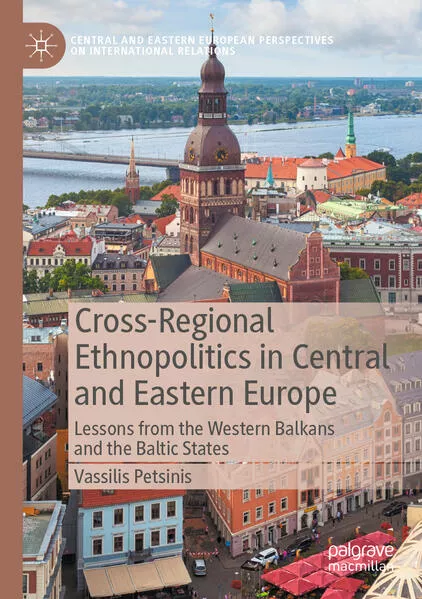
- Publikationen ca: 3
- Fragen & Antworten
Vassilis Petsinis
Vassilis Petsinis is Senior Research Fellow in Comparative Politics at the Johan Skytte Institute of Political Studies, University of Tartu, Estonia, within the frame of the Horizon 2020 POPREBEL international project. He is a political scientist with an expertise in European Politics and Ethnopolitics. His Marie Skłodowska-Curie (MSCA-IF) individual research project at the University of Tartu (2017-2019) was entitled: ‘Patterns and management of ethnic relations in the Western Balkans and the Baltic States’ (project ID: 749400-MERWBKBS). Vassilis Petsinis has developed a regional specialization in the countries of Central and Eastern Europe. He has conducted research and taught at universities and research institutes in Estonia (Tartu University), Germany (Herder Institut in Marburg), Denmark (Copenhagen University), Sweden (Lund University, Malmö University, Södertörn University, and Uppsala University), Hungary (Collegium Budapest/Institute for Advanced Study), Slovakia (Comenius University in Bratislava), Romania (New Europe College) and Serbia (University of Novi Sad). Vassilis Petsinis holds a Ph.D. in Russian and East European Studies from the University of Birmingham, UK. He is the author of National Identity in Serbia: The Vojvodina and a Multiethnic Community in the Balkans (2020) and various academic publications that cover a range of countries as diverse as Serbia, Croatia, Romania, Hungary, Slovakia, Estonia, Latvia, and Greece.
Cross-Regional Ethnopolitics in Central and Eastern Europe
This book bridges the gap between academic researchers and policymaking experts working on the Western Balkans and those dealing with the Baltic States. Within the frame of a comparative and cross-regional approach, Vassilis Petsinis generates new insights in subjects as diverse as: how geopolitics shape the management of ethnic relations; the variants of Euroscepticism; opposition to immigration and LGBTQI rights; the patterns of multi-ethnic cohabitation; as well as the endeavour by parties of the populist and radical right to embed their platforms into the longer trajectories of ethno-nationalism in the countries and societies studied (Estonia and Latvia from the Baltic States; Croatia and Serbia from the Western Balkans).
Cross-Regional Ethnopolitics in Central and Eastern Europe
This book bridges the gap between academic researchers and policymaking experts working on the Western Balkans and those dealing with the Baltic States. Within the frame of a comparative and cross-regional approach, Vassilis Petsinis generates new insights in subjects as diverse as: how geopolitics shape the management of ethnic relations; the variants of Euroscepticism; opposition to immigration and LGBTQI rights; the patterns of multi-ethnic cohabitation; as well as the endeavour by parties of the populist and radical right to embed their platforms into the longer trajectories of ethno-nationalism in the countries and societies studied (Estonia and Latvia from the Baltic States; Croatia and Serbia from the Western Balkans).
Cross-Regional Ethnopolitics in Central and Eastern Europe
This book bridges the gap between academic researchers and policymaking experts working on the Western Balkans and those dealing with the Baltic States. Within the frame of a comparative and cross-regional approach, Vassilis Petsinis generates new insights in subjects as diverse as: how geopolitics shape the management of ethnic relations; the variants of Euroscepticism; opposition to immigration and LGBTQI rights; the patterns of multi-ethnic cohabitation; as well as the endeavour by parties of the populist and radical right to embed their platforms into the longer trajectories of ethno-nationalism in the countries and societies studied (Estonia and Latvia from the Baltic States; Croatia and Serbia from the Western Balkans).


